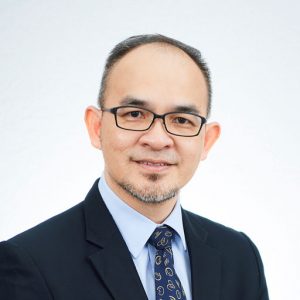SBC is committed to its mission “to glorify God by training faithful servants of Jesus Christ to edify the body of Christ and to make disciples of all nations.” But can theological training really make disciples? And is SBC truly training disciple-makers who multiply disciples of all nations?
Time and again, these questions have been posed by our College sponsors and especially by our senior leadership. They are valid and important questions, because they probe whether we are fulfilling the purpose of our founding and our mission. I would like to propose three ways to reflect on these questions: first, by thinking of theology as discipleship; second, by thinking of theological training as an act of disciple-making; and third, by thinking of theological education as deepening discipleship for the church and mission fields.
Definition: Theology is discipleship
Theology is done when our thought, speech, and way of life are faithful to the revelation of God in Christ; discipleship is done when the thought, speech, and way of life of Christians follow the example of Jesus Christ. Thus, theology is a form of discipleship.
We see this reflected in Paul’s final words to the elders of the Ephesian church (Acts 20:18–35). He urged them to keep putting into practice a Christ-centred faith, following his example to learn God’s Word rigorously (Acts 20:20–21, 32), pursue a sanctified way of life (20:18–19, 33), and serve and meet needs through hard work (20:34–35).
The church led by Christ’s apostles has shown us that theology is shaped within a community of disciples, whose thought, speech, and way of life flow out of a Christ-centred faith by which they love and serve one another. In short, we can never practise theology alone. We learn to think about God rightly and speak of God truthfully in relationship with our fellow disciples who share the same apostolic faith.
Process: Theological training is an act of disciple-making
If theology is discipleship, then theological training marks serious discipleship. We see this in the life and ministry of Apollos. The Book of Acts tells us he was learned and knew the Scriptures thoroughly (18:24). “He had been instructed in the way of the Lord,” so obviously he was discipled in the church; his gift of teaching was discovered and he was given opportunities to exercise it, so “he spoke with great fervour and taught about Jesus accurately” (18:25a). However, his teaching was limited, because “he knew only the baptism of John” (18:25b). Despite being an eloquent and powerful preacher and teacher, Apollos fell short of teaching the gospel fully.
Priscilla and Aquila were a faithful Christian couple. After hearing Apollos preach, “they invited him to their home and explained to him the way of God more adequately” (18:26). The Greek word behind “more adequately” is literally “more accurately” (recall that Apollos already taught about Jesus “accurately”). The use of this word implies discipleship must ensure that Christian teachings are as accurate, thorough, and faithful as possible to the whole counsel of God.
Goal: Theological education deepens discipleship
The Mediterranean and Middle Eastern pastors, teachers, and leaders of the early church—also known as the Church Fathers—often gathered to formulate the basic tenets of Christian belief, defend orthodox faith against heresies, and proclaim the gospel through their words and deeds. We understand from their ministry why disciples must acquire theological knowledge for effective communication of God’s Word.
However, the dualistic worldview shaping the Western mind has subtly changed the course of theological education. Under its influence, we see the world by separating the mind and body, sacred and secular, theory and practice, values and facts, science and theology, and so on. This dichotomous thinking has led modern theological education to be only about academic standards, rather than also about discipleship founded in the knowledge of God’s Word. This tendency of education has caused multidimensional conflicts and splits between the church and theological scholarship.
Proposal: Recover theology as discipleship
How may we restore theology as discipleship? In every context, theological educators, scholars, teachers, pastors, and church leaders could come together to rebuild a framework for theological education that ensures discipleship is pursued in rigorous scholarship and sustained in fervent spirituality, in order to edify the church, evangelize the lost, and make disciples of all nations. This was why SBC was founded in 1952, and this is why we continue the mandate of practising theology as discipleship to this day.
Please pray for us and join us as we pursue rigorous discipleship in theology.






